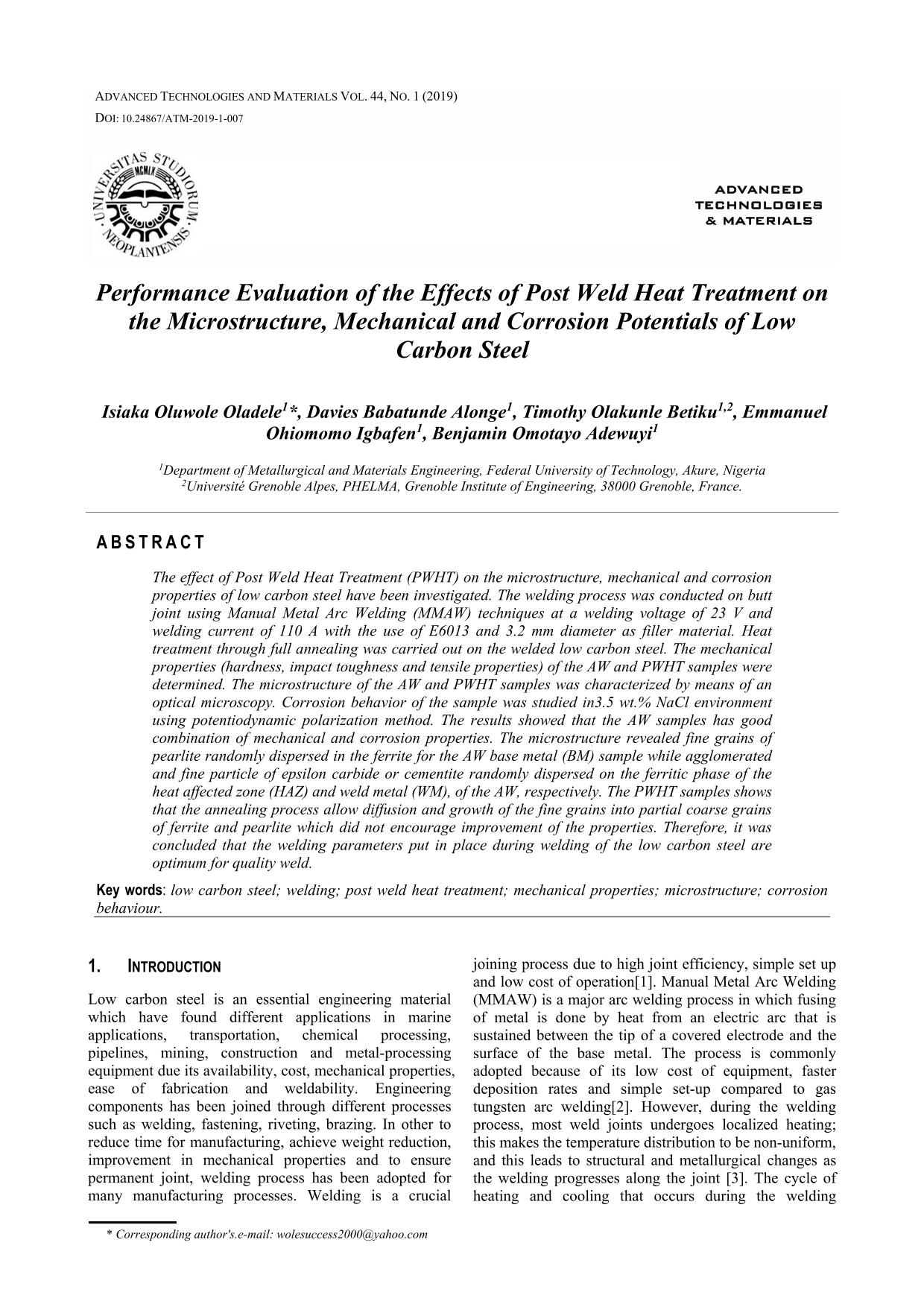Performance Evaluation of the Effects of Post Weld Heat Treatment on the Microstructure, Mechanical and Corrosion Potentials of Low Carbon Steel

Published 2023-09-30
abstract views: 82 // Full text article (PDF): 53
Keywords
- low carbon steel,
- welding,
- post weld heat treatment,
- mechanical properties,
- microstructure
- corrosion behaviour ...More
How to Cite

This work is licensed under a Creative Commons Attribution 4.0 International License.
Abstract
The effect of Post Weld Heat Treatment (PWHT) on the microstructure, mechanical and corrosion properties of low carbon steel have been investigated. The welding process was conducted on butt joint using Manual Metal Arc Welding (MMAW) techniques at a welding voltage of 23 V and welding current of 110 A with the use of E6013 and 3.2 mm diameter as filler material. Heat treatment through full annealing was carried out on the welded low carbon steel. The mechanical properties (hardness, impact toughness and tensile properties) of the AW and PWHT samples were determined. The microstructure of the AW and PWHT samples was characterized by means of an optical microscopy. Corrosion behavior of the sample was studied in 3.5 wt.% NaCl environment using potentiodynamic polarization method. The results showed that the AW samples has good combination of mechanical and corrosion properties. The microstructure revealed fine grains of pearlite randomly dispersed in the ferrite for the AW base metal (BM) sample while agglomerated and fine particle of epsilon carbide or cementite randomly dispersed on the ferritic phase of the heat affected zone (HAZ) and weld metal (WM), of the AW, respectively. The PWHT samples shows that the annealing process allow diffusion and growth of the fine grains into partial coarse grains of ferrite and pearlite which did not encourage improvement of the properties. Therefore, it was concluded that the welding parameters put in place during welding of the low carbon steel are optimum for quality weld.

